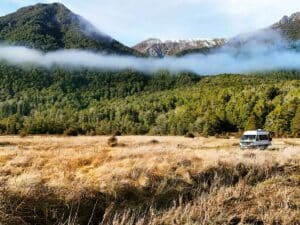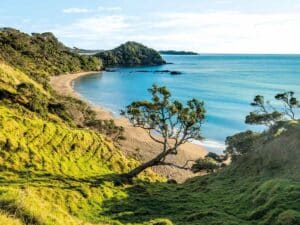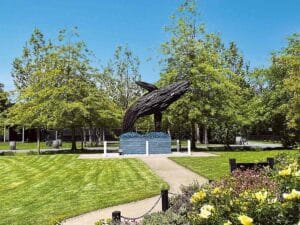We are spoiled for choice in Hawke’s Bay when it comes to wineries. The long, hot, dry summers here are ideal for growing grapes, so the winemaking industry is a burgeoning one.
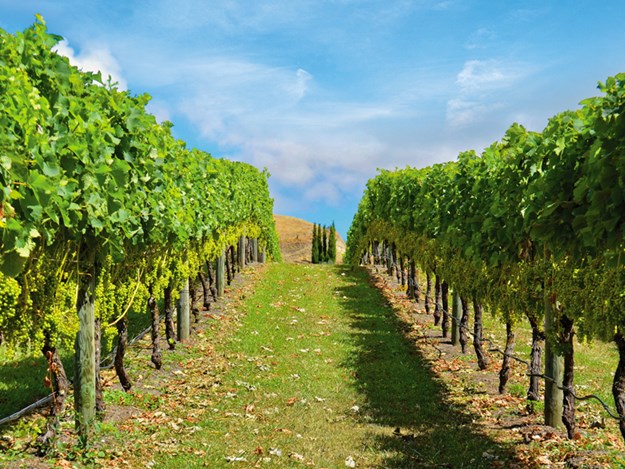
Coupled with the region’s reputation as an abundant food bowl, you can see why it has been likened to a similar region also famous for its food and wine—the Napa Valley in the US.
Recently, my friends, Anna and Lynn, and I decided to be tourists in our backyard and visit a few wineries.
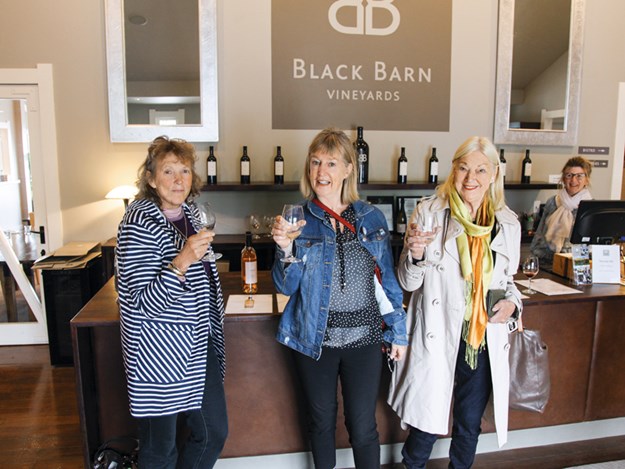 |
At Black Barn Vineyards — (from left to right) Lynn Marsh, Viv Haldane and Anna Locker-Lampson |
Apart from Black Barn in Havelock North, we decided to focus on those to the west of Hastings in the Bridge Pa Wine Triangle and Gimblett Gravels regions.
Sileni Estates and Ash Ridge are located in the former, while Trinity Hill and Te Awa are in the latter.
Black Barn Vineyard
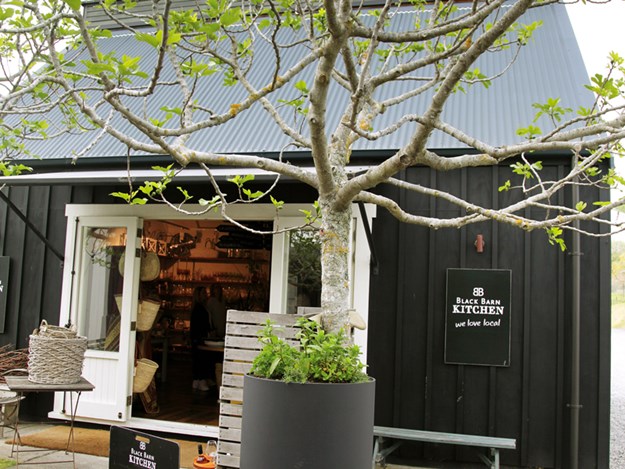 |
Black Barn Kitchen Store |
Black Barn is only a short drive out of Havelock North Village and was the perfect place to kick off our day. Not only is there a cellar door but also a kitchen store and bistro.
Black Barn’s stylish kitchen store is crammed with everything a cook needs, from kitchen equipment to information on where to source fresh, local ingredients. We left feeling inspired.
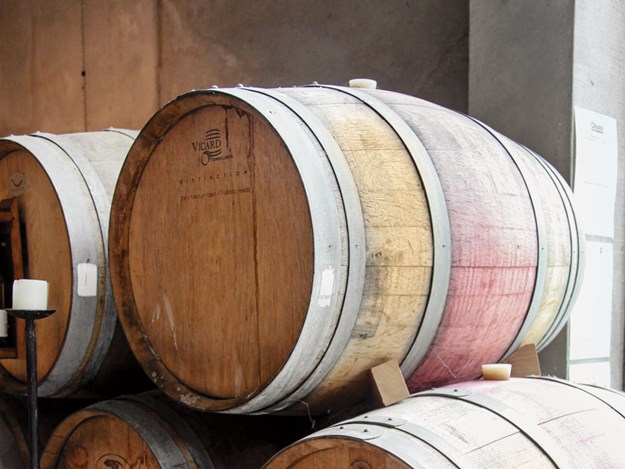 |
Oak barrels add colour and flavour, we were told |
We know we like wine but are mostly ignorant when it comes to its more unusual details such as whether it’s made in oak barrels or has strawberry, peach or peppery notes.
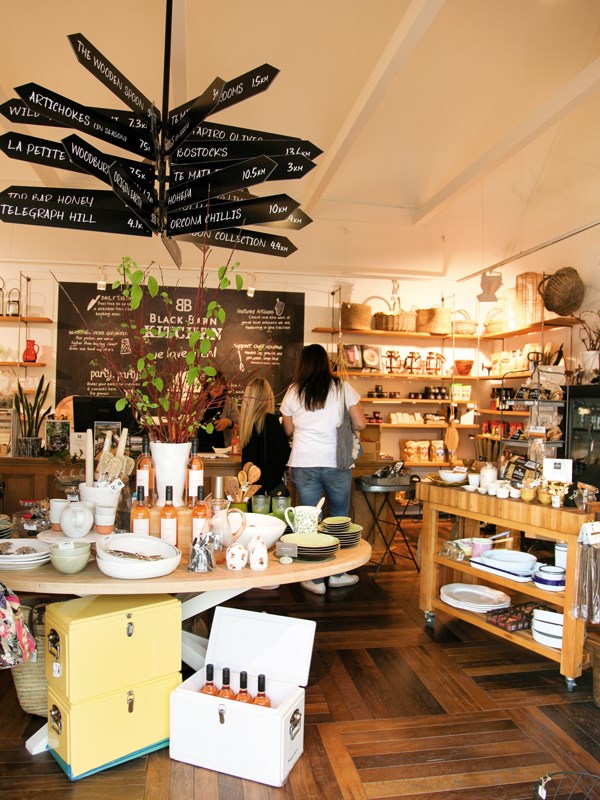 |
A cook’s treasure trove |
During the summer months, the Black Barn Grower’s Market is popular with visitors, and in the evening, you can relax at the open-air cinema or attend one of the many music events on offer at the Black Barn Amphitheatre.
Sileni Estates
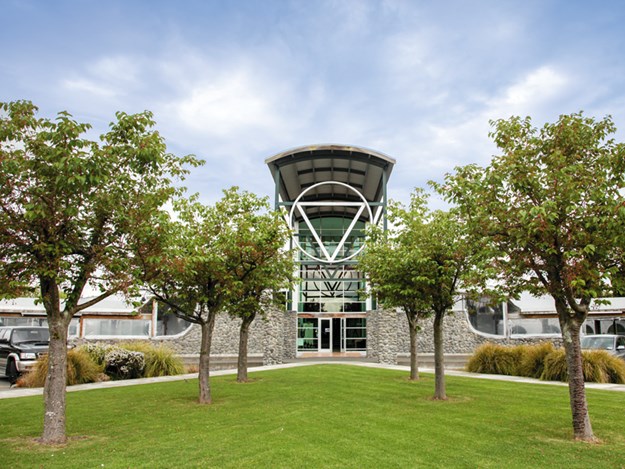 |
Sileni Estate’s triangular symbol represents great food, great wine and great company. The circle reflects their global outlook. |
Our drive from Havelock North towards Bridge Pa took us past fruit trees laden with blossoms. At Sileni Estates, the long driveway leads past rows of vines displaying their first tender leaves to an imposing building featuring an inverted triangle enclosed in a circle.
Sileni Estates was established by entrepreneur Sir Graeme Avery in 1997 and its first vintage was produced in 1998.
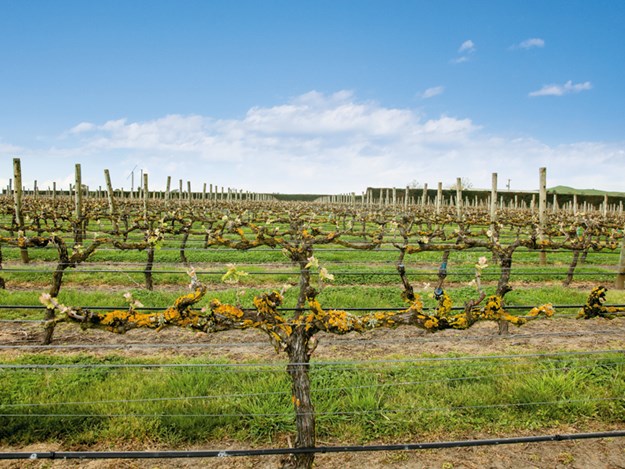 |
The promise of a good season: buds burst at Sileni Estate |
We like the sound of their hedonist viognier and having tasted it, Lynn buys a bottle, while I enjoyed their gewürztraminer so add that to my haul.
Cellar door host, Dale Spong, spoke about the early days of the Gimblett Gravels region. “Pask Winery founder, Chris Pask flew over the area in his topdressing plane and thought, even though it was poor sheep farming land, the gravel soils overlaid with river silt, would be perfect for growing grapes.”
His observation proved correct and as more vineyards went in, property prices rocketed overnight.
Trinity Hill Winery
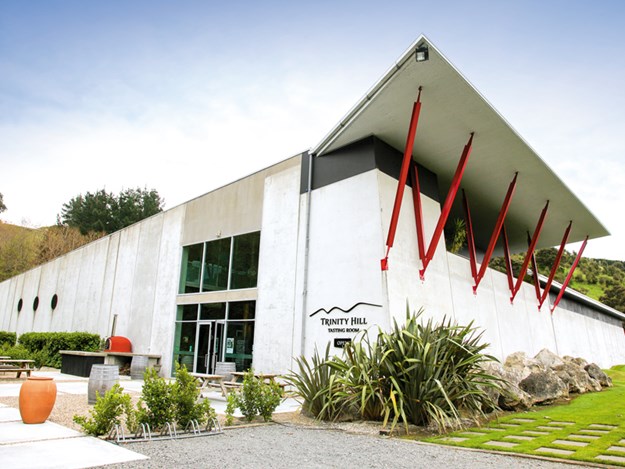 |
Trinty Hill Winery is renowned for its award-winning wines, particularly the Syrah |
Another vineyard renowned for its award-winning wines, particularly the Syrah, is Trinity Hill, which was started, by co-owner and winemaker, John Hancock in 1993.
I’d noticed the industrial-looking building many times while driving along this road and was intrigued to see what it was like inside. I was not disappointed; the cellar door with a view of the barrel hall has a great atmosphere that immediately draws you into its winemaking heart.
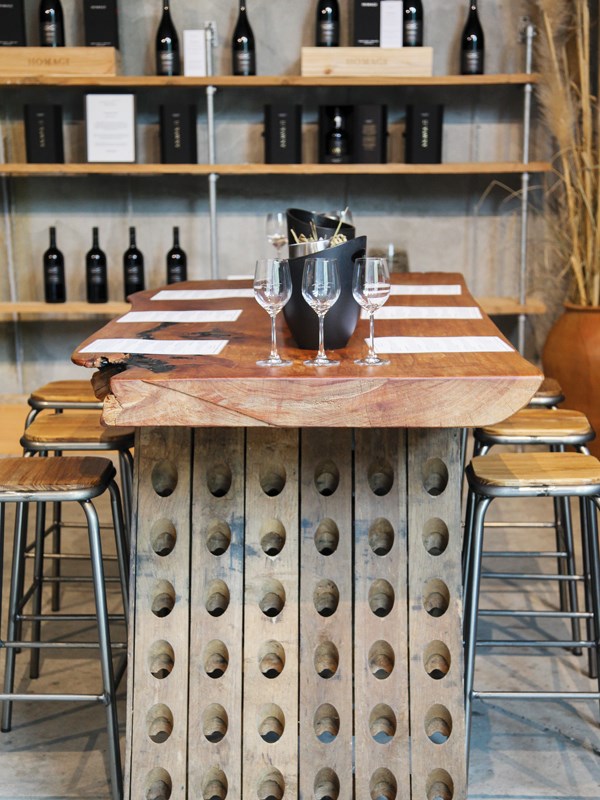 |
A comfortable corner for tasting at Trinity Hill Winery |
We followed the tasting advice written up on a chalkboard, starting with white wine before moving on to the reds. Once again, we had expert help to inform us.
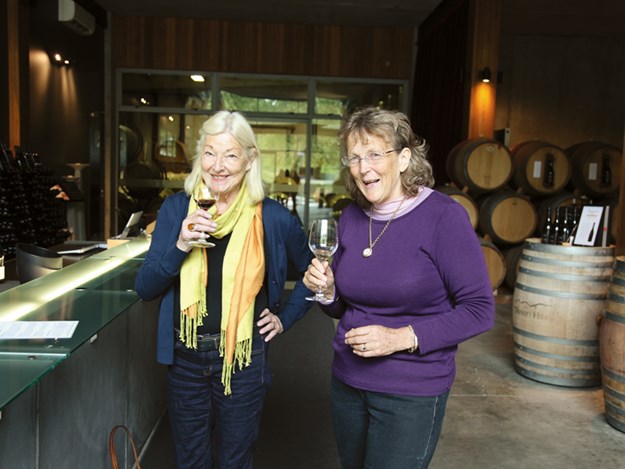 |
Anna and Lynn enjoy a glass of wine at Trinity Hill |
Trinity Hill offers simple platters to accompany wine, and on a beautiful day, you can sit outside on the lawn.
Te Awa Winery
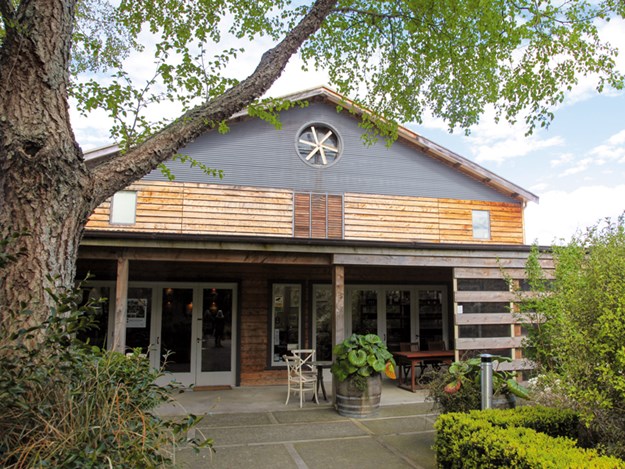 |
Te Awa Winery’s restaurant is worth checking out |
Just across the road from Trinity Hill is Te Awa Winery, which has a fantastic restaurant set among the vineyard. We were booked in for lunch, but first, we dropped into the tasting room where Claire Seymour offered more illuminating information.
Reassuring us, she said, “With wine, you can dive in as deep as you like, or not. It’s entirely up to you.”
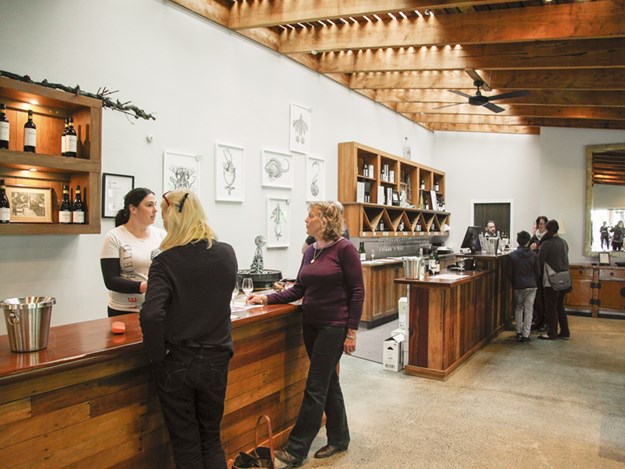 |
Te Awa Winery — Part of the enjoyment of wine-tasting is the ambience of the cellar door |
Once in the restaurant, we decided to share a mixed platter of their delicious food, the Gimblett Sampler, comprising locally sourced flavours: duck, eel, mushrooms, grapes, and herbs.
Well satisfied, we moved onto our last stop of the day, another short drive along the same road.
Ash Ridge Wines
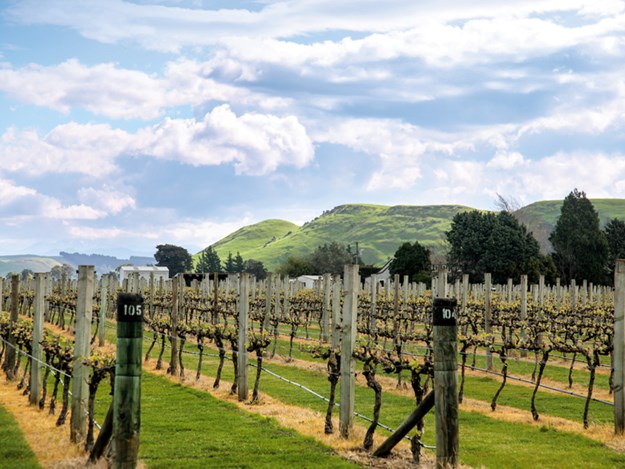 |
Spring growth at Ash Ridge |
Nicola offered us each a seat at a table on the deck and then brought out tastings one at a time, leaving us to mull over what we thought before bringing out the next one. Now, this we like!
And if you’re feeling peckish, pizza and simple platters are available to satisfy your hunger pangs. The boutique winery is family-owned, with the vineyard first planted in 2005.
“We have a young winemaking team here; Lauren Swift is 29 and assistant winemaker, Lachie is 24,” Nicola says. “Lauren won the Young Winemaker of the Year in 2015. Winery proprietor, Chris Wilcock likes to encourage the new generation of winemakers to try out
new things.”
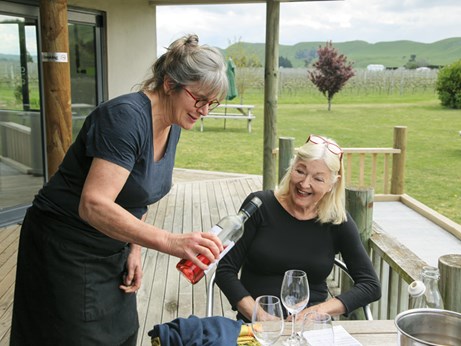 |
Nicola from Ash Ridge pours wine for Anna |
On Yer Bike self-guided tours are run from Ash Ridge Wines, so you can hire a bike and explore nearby wineries along the easy-contour limestone trails at your leisure. ‘A pick up your purchases’ support vehicle is also offered.
There is plenty of parking for motorhomes here, too. In fact, all the places we visited had good parking spaces.
We were impressed by the expert knowledge we encountered on the day and certainly came away knowing more than when we set out. Anna sums it up when she says, “Aside from learning more about wine, it’s about having a day out in good company and the fun of visiting different wineries.”
Note: Most cellar doors charge a tasting fee that is waived on the purchase of wine.
Hawke’s Bay wine-growing fast facts
- It’s the oldest wine-growing region, beginning in 1851, and the second largest after Marlborough in the South Island.
- Among the first wineries were The Mission Estate, Te Mata Estate, Vidal Estate, McDonald’s Winery, and Glenvale Winery (now Esk Valley Winery).
- Within Hawke’s Bay, there are distinctive growing regions: Hotter plains at sea level: Merlot, Syrah, and Semillon. More cooling higher altitude foothills and coast: chardonnay, pinot noir, and sauvignon blanc.
- The Gimblett Gravels First planted 1981 with merlot, cabernet sauvignon, and cabernet franc, 90% of the land is planted with red grape varieties: 35% merlot, 20% syrah, 15% cabernet sauvignon, 7% malbec, 4% cabernet franc. The remaining 10% is planted with chardonnay, viognier, and a few varietals—gewürztraminer, riesling, and arneis.

